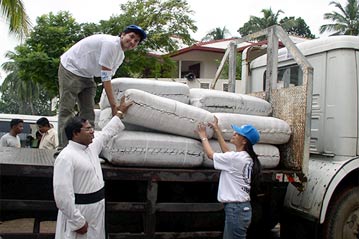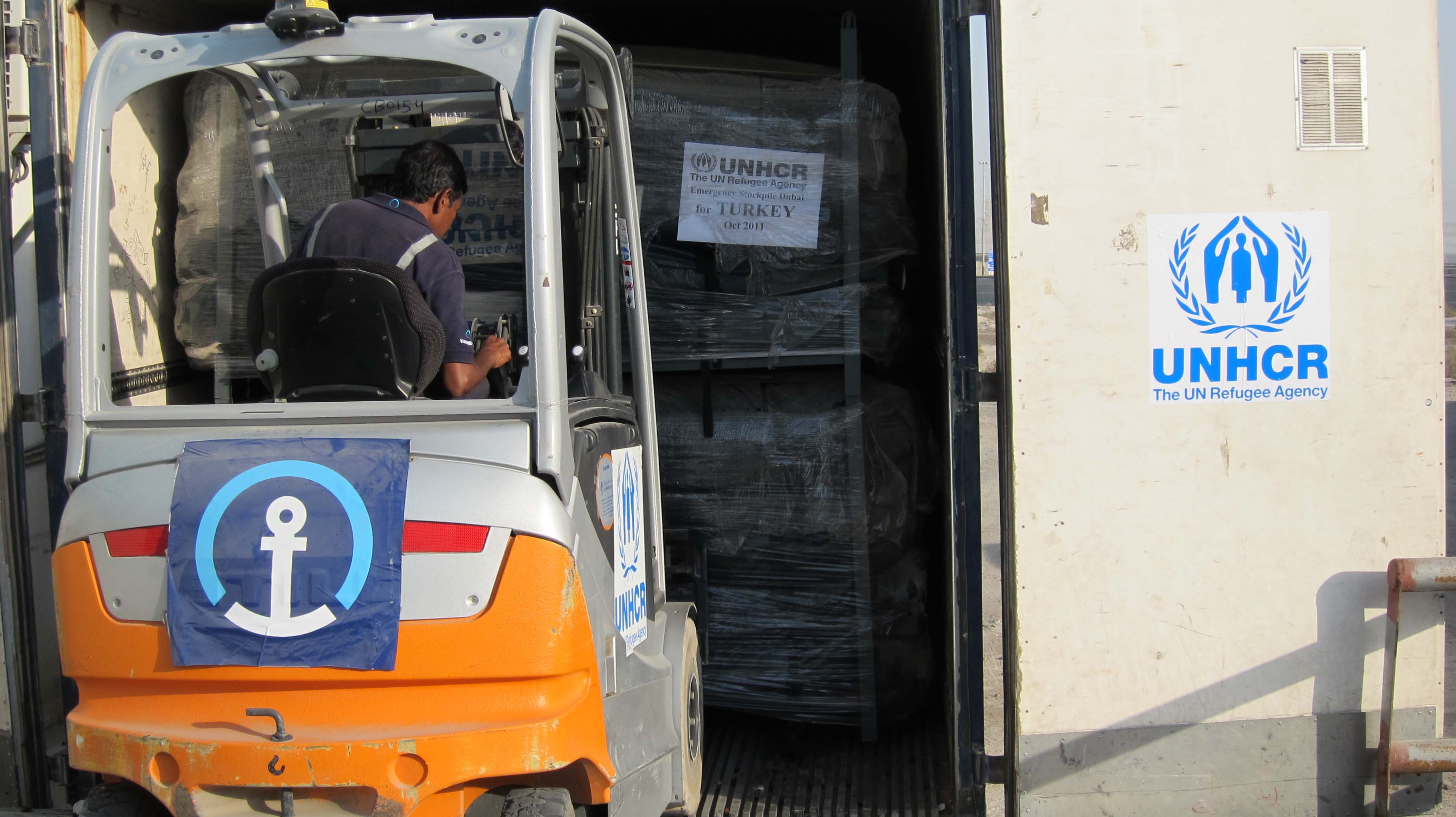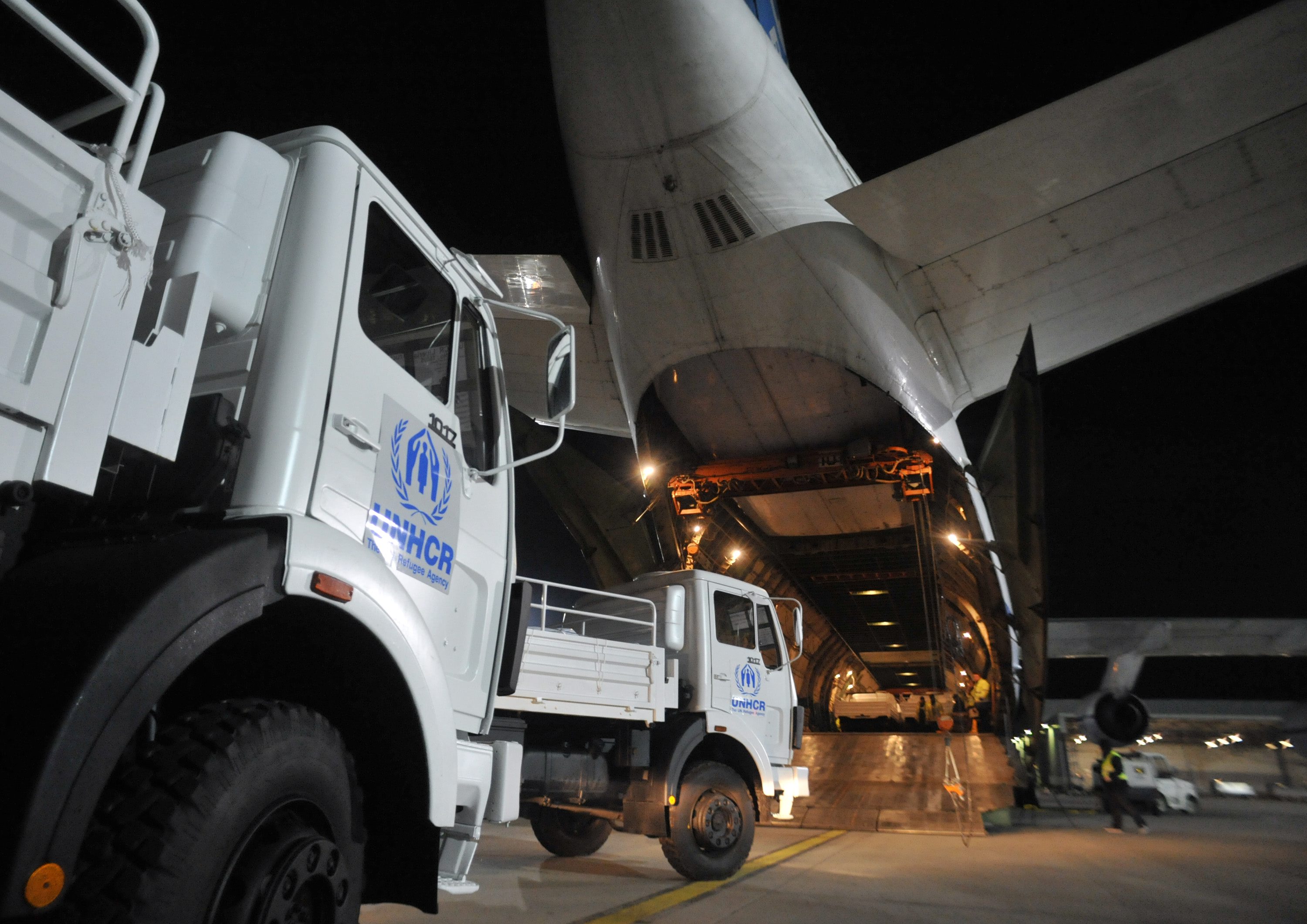No holding back on emergency aid to tsunami victims, says UNHCR
No holding back on emergency aid to tsunami victims, says UNHCR

GENEVA, Dec 28 (UNHCR) - The UN refugee agency is working closely with the United Nations country teams to provide relief and assistance to tens of thousands of people throughout the Asian region affected by Sunday's catastrophic earthquake and tsunami.
In Sri Lanka, one of the worst hit countries, UNHCR immediately started distributing relief supplies by truck from its warehouses to the affected population. The agency is now considering putting at the disposal of the UN country team further relief supplies from UNHCR's regional warehouses in Africa and the Middle East and its central warehouse in Copenhagen, Denmark, if requested.
"What is most important is getting urgently needed resources on the ground at the country level. There should be no holding back on assistance," UNHCR's Asia Pacific bureau director, Janet Lim, told an emergency meeting in Geneva today.
UNHCR's response will be coordinated with the United Nation's Office for the Coordination of Humanitarian Affairs, OCHA.
In total, UNHCR is initially distributing $380,000 of non-food relief items, including 23,500 plastic sheets for shelter, 24,500 plastic mats, clothing, towels and 20,000 kitchen sets.
With seven offices throughout the island, the refugee agency has been working in Sri Lanka for nearly 20 years with people internally displaced by the civil conflict and with returning refugees. It currently assists some 393,000 people in the country. Several missions have been made by field offices to assess their situation.
"These people are now facing double displacement and we face a formidable task in the future to deal with this," Lim said.

Working with its local partners, the refugee agency has organised mobile health clinics and is using its transport to help local relief efforts. This includes transporting the dead and injured.
In Malaysia, thousands of refugees from Indonesia's strife-torn province of Aceh, which was devastated by the quake and tidal waves, are desperate for news of their loved ones and are calling to be included in any family tracing mechanism set up. Over 10,000 refugees from Aceh are in Malaysia and unable to go back and help their relatives and families.
UNHCR staff have been put at the disposal of OCHA in the affected region to assist with the massive emergency response.







